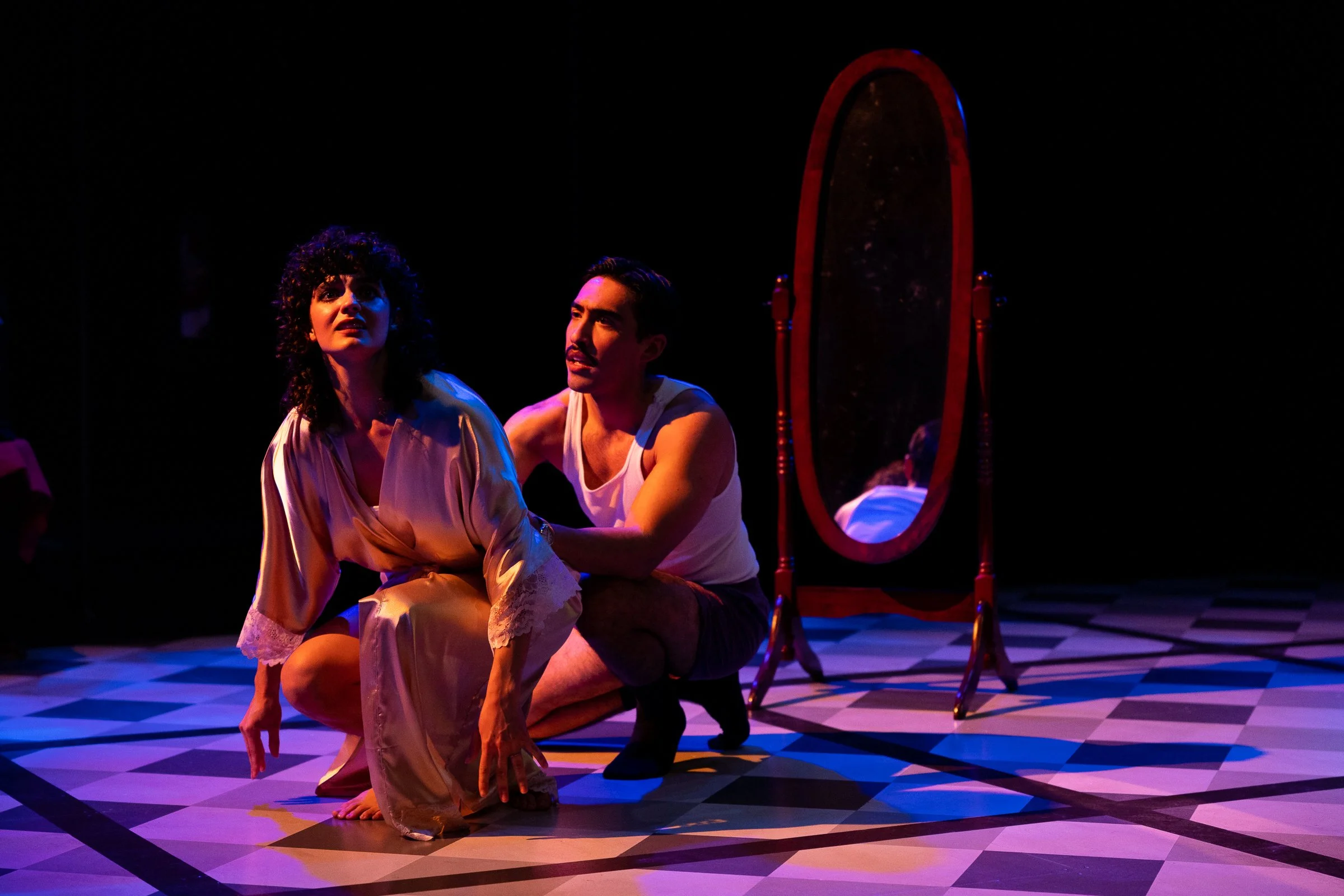
Machinal
by Sophie Treadwell
Theodore and Adele Shank Theatre
University of California, San Diego
San Diego, California
November-December 2022
It is a deeply lonely task to try and fit yourself into a space where you do not feel you belong. In Machinal by Sophie Treadwell, Helen Jones-referred to as “Young Woman” in the script-finds herself constantly alienated by the patriarchal, mechanical world in which she lives. The subways are too crowded, her work is endless and repetitive, and at the age of 23 the pressure to maintain beauty standards, get married, and have children is consuming her. Navigating her way through the rigidity of this society, Helen feels like she is the only one struggling to conform, and she yearns endlessly for somebody to help her feel stabilized. Helen cannot manage to connect with anyone else for whom the pace and inflexibility of the world is similarly crushing, although the play strongly implies that others face a similar struggle. A scene that takes place in a speakeasy demonstrates that this is a world built to exclude, and it is stifling to anyone who is not a cis, straight, white, wealthy man. As a woman in this environment, there is an unrelenting and narrow forward motion to the Young Woman’s life, and the anxiety it breeds makes her desperate for an escape. It isn’t until she meets a drifting man who lives outside of this society that she sees a pathway for this escape: he mentions a time in his travels where he had to kill a group of men holding him captive in order to be free, and instantly she is intoxicated by and thirsty for the freedom he has. As a woman, she isn’t afforded the same opportunities he is to drift and live safely outside of conventional society, but she hears in the extreme of murder a leap she could potentially take. She has an affair with him, but more importantly she gets close enough to plot her own escape. Young Woman murders her husband in an effort to free herself from her narrow trajectory. Soon after, she is put on trial for his murder, found guilty, and put to death. Her last words before she is executed are “Somebody! Somebod-”
This production of Machinal explored Young Woman’s captivity by being stage on a tiled floor which served as a grid for the ensemble and a cage for Helen. The ensemble functioned like an organism, providing live foley for each scene, transitioning the furniture, and changing Young Woman’s clothes on stage. Though the play maintained its 1920’s circumstances, the audience were invited to feel connected to the protagonist as they watched Young Woman run towards them in each transition, desperate for understanding. After a cacophony of noise, the play ended with the ensemble suddenly freezing. Young Woman slipped out of the electric chair and for the first time took a step off the floor treatment and stared out at the audience. After a long moment spent looking out, she crossed to a large door, pushed it open, and walked out of the theatre, allowing the sounds, smells, and lights of the outside to fill the theatre.
CAST
YOUNG WOMAN - Ellen Nikbakht
ADDING CLERK/OTHERS - Tommy Huebner
FILING CLERK/OTHERS - Mark Dyachuk
TELEPHONE GIRL/OTHERS - Rachel Halili
STENOGRAPHER/OTHERS -Gabriella Johnson HUSBAND/OTHERS - Victor Flores LAWYER/OTHERS - Sashank Kanchustambam NURSE/OTHERS - Isabelle McKelvey DOCTOR/OTHERS - Michael Kendrick MOTHER/OTHERS - Abigail Hood PRIEST/OTHERS - Aidan Zusin LOVER - Ryan Ritterby
CREATIVE
ASSISTANT DIRECTORS - Mawce Dunn and Laylena Zipkin DRAMATURG - Maddie Williams SCENIC DESIGNER & PROP DESIGNER - Michael Wogulis
COSTUME DESIGNER - Euihyun Song
LIGHTING DESIGNER - Bryan Ealey
SOUND DESIGNER - Salvador Zamora MAKEUP DESIGNER - Lauren Guiso
STAGE MANAGER - Caleb Cook PHOTOGRAPHERS - Manuel Rotenberg and Rich Soublet























